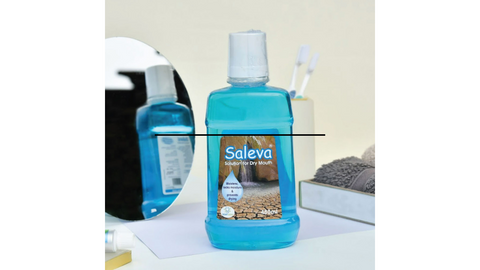Bleeding gums are a common problem that can affect people of all ages. While it is usually not a cause for serious concern, persistent bleeding can be a sign of gum disease. If you notice gums bleeding, there are a few things you must know about how to stop bleeding gums while brushing and prevent it from happening again.
Table of Contents:
► Understanding the Common Issue of Bleeding Gums While Brushing
► What you can do to prevent gums from bleeding?
► Choosing the Right Toothpaste to Stop Bleeding Gums While Brushing
► When Bleeding Gums Indicate Serious Issues?
Understanding the Common Issue of Bleeding Gums While Brushing
There are many reasons why your gums might bleed when you brush your teeth. Some of the most common causes include:
- Gum disease
Gum disease is a bacterial infection that can cause inflammation and damage to the gums. This can lead to bleeding, swelling, and receding gums.
- Improper brushing technique
Brushing your teeth too hard or using a toothbrush with stiff bristles can irritate the gums and cause them to bleed.
- Dry mouth
A dry mouth can make it difficult to remove plaque, which can lead to bleeding gums.
- Medical conditions
Some medical conditions, such as diabetes, can make gums more susceptible to bleeding.
Medications: Some medications, such as those used to treat high blood pressure or anxiety, can cause dry mouth, which can lead to bleeding gums.
How to stop bleeding gums while brushing?
If you are experiencing bleeding gums while brushing, it is important to brush your teeth gently. Here are some tips for gentle brushing techniques:
- Use a soft-bristled toothbrush.
- Hold the toothbrush at a 45-degree angle to your gums.
- Brush in small, circular motions.
- Do not scrub your gums.
- Brush for two minutes, twice a day.
"Explore Oral Care Products Range"

Choosing the Right Toothpaste to Stop Bleeding Gums While Brushing
There are many different toothpastes on the market, and some of them are better for bleeding gums than others. Look for a toothpaste that contains:
- Vitamin E
Vitamin E helps to control the inflammation of gums.
GET VITAMIN E RINAMEL TOOTHPASTE TODAY!
- Incorporating Interdental Brushes
Interdental brushes are small, handheld brushes designed to clean between teeth. They can help to remove plaque and food particles from hard-to-reach areas, which can help to prevent bleeding gums.
EXPLORE OUR INTERDENTAL BRUSH RANGE
- Using Alcohol-Free Mouthwash
If gingivitis is the reason behind bleeding gums, one should start using Periex mouthwash. Periex contains chlorhexidine gluconate, an antiseptic that can help reduce plaque and inflammation. It is a prescription mouthwash for people with bleeding gums or gum disease.
ENQUIRE FOR PERIEX MOUTHWASH
When Bleeding Gums Indicate Serious Issues?
In most cases, bleeding gums are not a cause for serious concern. However, if the bleeding is severe or persistent, it is important to see a dentist to rule out any underlying medical conditions.
Frequently Asked Questions
Q. Why do I suffer from bleeding gums while brushing my teeth?
A. There are many reasons why your gums might bleed when you brush your teeth. Some common causes include:
- Gum disease
- Improper brushing technique
- Dry mouth
- Medical conditions
- Medications
Q. How can I stop my bleeding gums while brushing my teeth?
A. If your gums are bleeding when you brush, you can take steps to stop it and prevent it from happening again:
- Brush your teeth gently.
- Use a soft-bristled toothbrush.
- Choose a toothpaste with fluoride and chlorhexidine gluconate.
- Use interdental brushes to clean between your teeth.
- Rinse with an alcohol-free mouthwash.
- See your dentist regularly for checkups and cleanings.
Q. How long does it take to stop bleeding gums while brushing?
A. The bleeding gums while brushing should stop within a few minutes. If it continues for more than a few minutes, or is severe, see a dentist to rule out any underlying gum disease.


